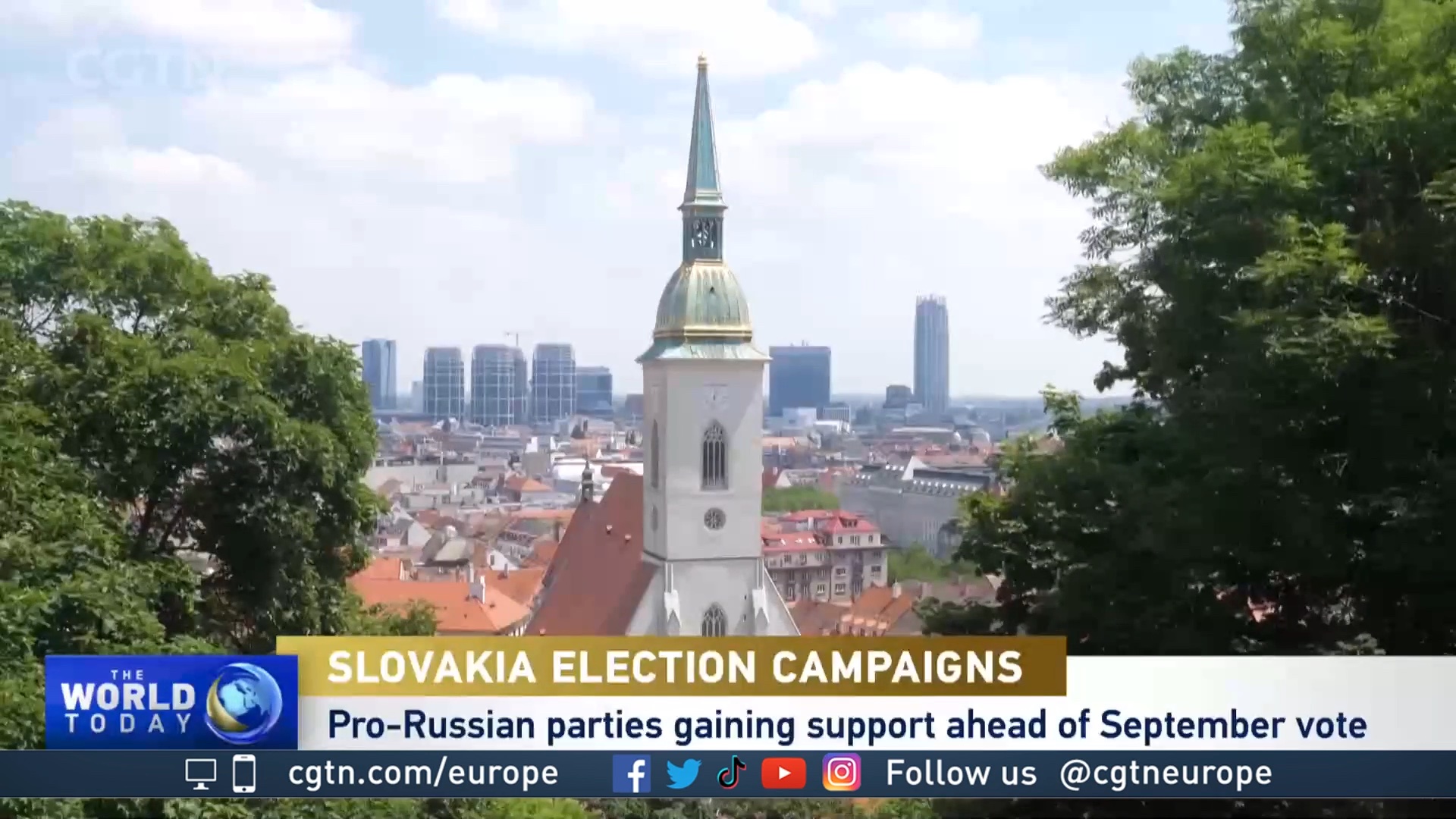02:49

The small eastern European country of Slovakia has suffered three years of political turmoil, with three governments been and gone in that time. And there's no sign of the drama letting up, with the country due to go to the polls again in September amid a power vacuum.
Many worry that the political uncertainty has polarized the electorate, potentially paving the way for the return to power of a controversial former Prime Minister previously investigated for alleged ties to organized crime.
At noon the bells from St. Martin's Cathedral can be heard throughout Bratislava, Slovakia's capital city of roughly 440,000 people. This former Eastern Bloc country may appear firmly pro-western; it has backed neighboring Ukraine since the start of the conflict with Russia and even provided Kyiv with 13 MIG-19 fighter jets earlier this year.
However, there are signs that under the surface, anti-NATO and anti-EU sentiment is gaining momentum.
READ MORE
Wagner Group agrees to 'de-escalate' as Putin calls allies
What is the Wagner Group and who is its leader?
The Windrush generation's long journey to justice
"There will be a fundamental change in the foreign policy orientation of the country and the stance towards Ukraine," according to Zsolt Gal, a political scientist and center-right candidate for the Slovak parliament.
Gal says the country's political turmoil after two failed political coalition governments, and the resignation in May of the caretaker government's Prime Minister Eduard Heger, has fueled the revival of Smer, a populist right-wing party.
Led by controversial former Prime Minister Robert Fico, Smer topped recent opinion polls, although his lead is narrowing. Fico has pledged to end all military support for Kyiv.
The three-time former prime minister has been investigated for his ties to organized crime. He was forced to resign in 2018 after mass protests against high-level corruption that followed the murder of an investigative journalist and his fiancee.

Former Prime Minister Robert Fico (right) is a controversial figure. /CFP.
Former Prime Minister Robert Fico (right) is a controversial figure. /CFP.
With cracks showing in some central and eastern European countries regarding their stance on Ukraine, pro-Russian parties are gaining traction ahead of Slovakia's election.
Public approval of Russia as a strategic partner in this country is one of the highest among EU nations. According to NATO's annual tracker report, just 51 percent of Slovaks support the transatlantic alliance, compared with 70 percent across member states.
Another recent survey by the non-partisan group GLOBSEC revealed that 50 percent of Slovaks say the U.S. is a security threat to their country, while 47 percent said they felt favorably towards Russia.
Peter Hron, CEO of AUTO-IMPEX, one of Slovakia's largest automakers, says younger voters are dismayed by the potential turn towards Russia, while political uncertainty has made the business community nervous.
"Young people like myself, we've been fighting for change for 10 years," he told CGTN. "Since I was 18 or 19, I've been to all the protests, I was in the front row getting hit by the water hoses.”
Hron explained: "Entrepreneurs such as myself and others believe the market is reacting to these inputs; if you have a stable government you have a stable market, if you have a stable market you have investors coming in and much more transparency."

Slovakia's President Zuzana Caputova appointed a caretaker government in May. /Radovan Stoklasa/Reuters
Slovakia's President Zuzana Caputova appointed a caretaker government in May. /Radovan Stoklasa/Reuters
In the wake of the latest government collapse, Slovak's President Zuzana Čaputova appointed a caretaker government of technocrats, a group of experts to handle day-to-day administration, led by economist Ludovit Odor.
Caputova has expressed concern about the outcome of the country's upcoming election, warning that if a populist party wins Slovakia may go the route of Hungary, becoming what she called "an EU problem child" and putting it at odds with the bloc over support for Ukraine.
For now, electioneering continues in a nation increasingly weary of politics.
Subscribe to Storyboard: A weekly newsletter bringing you the best of CGTN every Friday